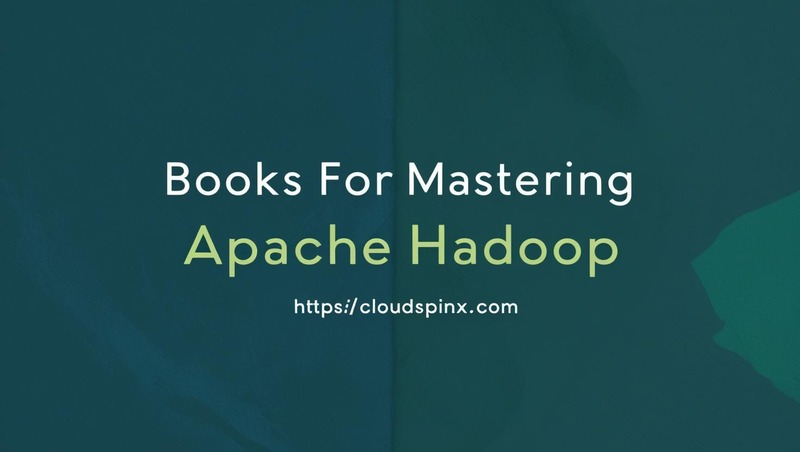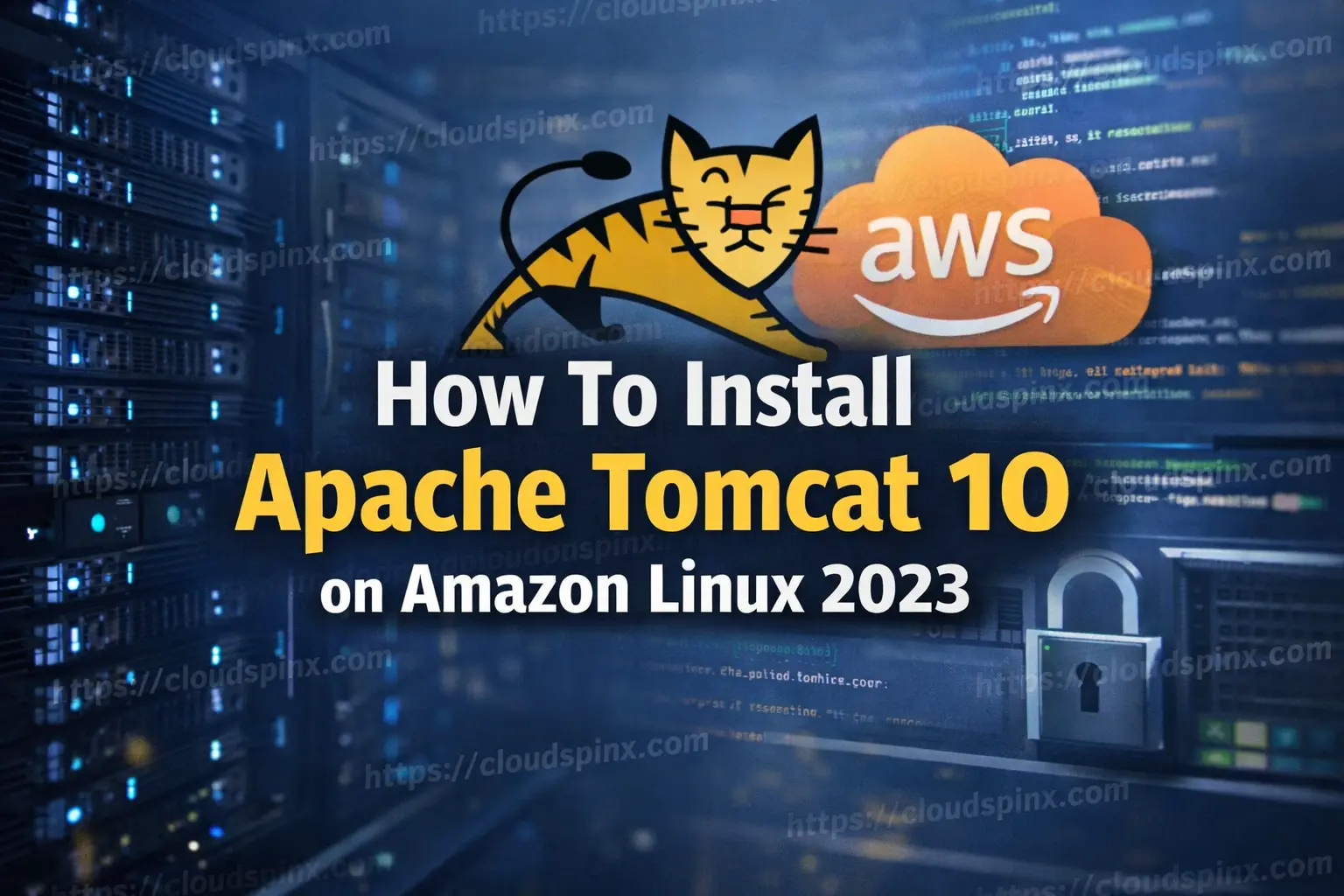Back when there was no internet, data was produced in minimal bits and at a relatively sluggish pace. Storing this type of data was not an issue as it was simply written in files and later progressed to Excel sheets which consisted of rows and columns. Remember that even with minuscule data production, everyone values any data, considering it is a precious thing that powers almost everything we do. As years went by, digitization took over, leading to tons and tons of data, either structured or unstructured and in the form of images, audio, video, emails, and more. Note that this kind of data improves our lives, leads to better business decisions, and assists in identifying a problem. But with this massive dataset, also called Big Data, there is a need for special tools, techniques, software, or technology to manage the large volumes of data and maximize its benefits. In this article, we will go through Apache Hadoop as one of the most popular tools to handle Big Data and the top-notch books you should read to master it.
What is Apache Hadoop
In this modern era, there is an abrupt increase in the scale and size of data produced on the web. Luckily, technology has improved, and there are new tools and platforms for gathering, storing, managing, transforming, and manipulating data. One outstanding tool that matches these technology innovations is Apache Hadoop, a scalable and powerful distributed computing platform. Apache Hadoop is known as an open-source framework that enables you to store, analyze and process large datasets. It was released in 2006 and was created by Doug Cutting and Mike Cafarella. Apache Hadoop was initially named after Cutting’s son’s toy elephant.
Since its development, it has become an essential tool for professionals such as data analytics, data scientists, and other experts dealing with large volumes of data or Big Data. It is an important option that helps handle complex datasets that could be difficult to deal with using traditional computational tools and techniques. Hadoop provides a fault-tolerant and cost-effective way of processing and analyzing massive amounts of data ranging from gigabytes to petabytes across a commodity of clustered servers or hardware.
What are the benefits of adopting Apache Hadoop?
- Scalability: Apache Hadoop has a distributed architecture that helps it to scale horizontally by adding extra machines or nodes to the cluster. Therefore, storing and distributing datasets across several inexpensive servers becomes possible. With the scalability advantage, organizations can run apps on multiple nodes and handle terabytes of data. Also, without complexity or entire system failure, Apache Hadoop will scale horizontally and vertically and let you handle volumes of datasets.
- Apache Hadoop is Cost Effective: Being open-source, Hadoop uses less expensive hardware that offers a cost-efficient model. It is a better solution than traditional relational database management, which needs costly hardware and powerful processors to handle Big Data. Remember that the software part of Hadoop is free of charge and simple to set up. With Hadoop, you will enjoy low costs and enhance the ability to store the company’s data.
- Fault Tolerance: One of the vital benefits of using Apache Hadoop is it is fault tolerant. Hadoop Distributed File System, also known as HDFS, makes three copies of the file across multiple computer nodes so that if one fails, the rest will provide the backed-up copies. It ensures high availability by automatically rerouting data to the functioning nodes, thus protecting the cluster during unplanned or planned downtime. Its ability to replicate data into different computers helps prevent data loss in case of system failure.
- Apache Hadoop Flexibility: Enterprises are fond of Apache Hadoop due it its flexibility and other dope advantages. It allows you to access different structured, semi-structured, and unstructured datasets. It can store, capture and process images, videos, JSON, XML, and others. Thus, a business can use this framework to adjust data analysis and get a hold of valuable insights from data. Also, since Hadoop can allow you to add nodes, it becomes possible to adapt to changing workloads and unpredictable data growth.
- Enhanced speed: Apache Hadoop uses a unique storage method known as the HDFS (Hadoop Distributed File System) which speeds up the process of analyzing and processing data. Remember that the Distributed File System performs by breaking a large file into small file blocks and then distributing them in the available nodes in the Hadoop cluster. Therefore, this technique allows faster data processing, resulting in Hadoop’s high-level performance. It can efficiently store and process terabytes of data within minutes, and other large volumes of unstructured data are also processed quickly.
Why should you learn Apache Hadoop?
Keeping updated with the latest technologies in today’s fast-paced modern world is essential. You must have heard of the term Big Data which involves large volumes of data, mainly produced due to the internet. You are in the right place if you wonder how this data is stored, processed, and analyzed. Notably, Apache Hadoop is a popular tool to ensure this data is well-protected and handled. In this article, we will take you through the most-effective books you should use to understand this area and become a pro when handling Big Data. Learning Apache Hadoop will help you understand why Hadoop is a gateway to Big Data technologies. Also, there is an increasing demand for Hadoop professionals; mastering it will offer you a tremendous opportunity to grab your dream job. Ride with the tide with this disruptive technology; considering Hadoop is taking the world to another level, learn it to avoid being left behind. Get ready to acquire the skillset you have always wanted from the books we have listed and become a reputable person in the IT industry.
Top Books To Learn Apache Hadoop
Below are some of the books you can use to master Apache Hadoop:
1. Hadoop: The Definitive Guide
Plenty of unstructured data is found online from emails, social media sites such as Facebook or Instagram, and other Big Data websites. Thus, there is a demand for some cost-effective solutions that will store and analyze this data. Hadoop is the number one answer, and you can explore its benefits using Hadoop: The Definitive Guide. Tom White, the amazing author, will allow you to unlock the power of Big Data after you go through this comprehensive guide. Tom is determined to make the overall picture of Hadoop easy to understand and covers everything you must master in Apache Hadoop.
Start reading this book today and learn how to create and maintain a scalable, reliable, distributed system using Hadoop. Note that this learning material is perfect if you are an administrator looking forward to setting up and running Hadoop clusters. Also, you are in the right place if you are a programmer who wants to learn more about analyzing datasets of different sizes. Your consistency will have you hooked to the chapters and let you understand the topics in Hadoop that you earlier thought were challenging to master. Dive deep into the concepts and get a proper understanding starting from design, implementation, and how to use Hadoop daily.

Some of the fantastic topics you will learn from Hadoop: The Definitive Guide includes:
- Understand the fundamental components like MapReduce, HDFS, and YARN
- Learn MapReduce in-depth, including steps for developing applications with it
- How to set up and maintain a Hadoop cluster running HDFS and MapReduce on YARN
- Master two data formats: Avro for data serialization and Parquet for nested data
- Using data ingestion tools, including Sqoop (for bulk data transfer) and Flume (for streaming data)
- Gain more knowledge on how high-level data processing tools like Pig, Hive, Crunch, and Spark work with Hadoop
- Understand the HBase distributed database and the ZooKeeper distributed configuration service
2. Hadoop for Dummies (For Dummies (Computers)) 1st Edition
Among other advantages, Apache Hadoop design will let you scale up from a single node to your multiple cluster computers, each machine providing quality local computation and storage. One of the critical ways to appreciate the power of Hadoop is learning, and through learning, you will understand how to store and process gigabytes to petabytes of data efficiently. Hadoop For Dummies is a top-rated book, helpful to those who want to understand Hadoop but have less knowledge about this subject. It is a recommended book for beginners and engineers determined to speed up their skills on Hadoop.
Dirk deRoos, the author, will assist you in harnessing the power of your data and finding the best approaches to retrieve valuable information from large volumes of datasets. Here is an outstanding book aiming to let you understand the value of Big Data, navigate the Apache Hadoop ecosystem and study how to build and manage Hadoop clusters and applications. Suppose you are a programmer overwhelmed with building and maintaining scalable data systems for handling vast volumes of information. In that case, this guide will offer the help and confidence you need. Go ahead and upskill your Hadoop knowledge using the extensive content in this top-notch book.

You will learn the following the Hadoop For Dummies:
- It explains the origins of Hadoop, its economic benefits, and its functionality and practical applications
- Assists you in finding your way around the Hadoop ecosystem, utilizing design patterns, program MapReduce, and getting your Hadoop cluster up and running quickly and easily
- Using Hadoop applications for data mining, large-scale text processing, data science, web analytics and personalization, and problem-solving
- Learn how to expand the value of your Hadoop cluster, make the most of your investment in Apache Hadoop, and avoid common pitfalls when building your Hadoop cluster.
3. Expert Hadoop Administration
Apache Hadoop is an exceptional software framework that large enterprises, companies, or tech giants use to solve the problem of storing and processing large and complex datasets. Consider using the Expert Hadoop Administration book to learn more about this topic. It is highly recommended for those who want to gain a detailed understanding of Hadoop administration and uses the logic of narration as a clear and smooth way to bring you up to speed on Hadoop concepts. Get ready to learn tuning, managing, and securing Spark, YARN, and HDFS(Hadoop Distributed File System).
Sam Alapati demystifies complex Hadoop environments and guides you through what happens when administering a Hadoop cluster. Here is a book that will give you the confidence to handle any Hadoop distribution or applications. Keeping in mind that the content provided is accurate, considering Sam has a unique depth of experience with production Hadoop clusters and has shared his knowledge in this book. He will show you how to create, secure, manage, and optimize Hadoop clusters in any environment. You will learn from realistic topics, which will equip you with the courage to handle real-world Hadoop administration tasks and roles.

More topics from this comprehensive Apache Hadoop Administration Handbook and Reference include:
- Master Hadoop’s architecture from an administrator’s standpoint
- How to create simple and fully distributed clusters
- Running MapReduce and Spark applications in a Hadoop cluster
- Managing and protecting Hadoop data and high availability
- How to work with HDFS commands, file permissions, and storage management
- Steps on moving data and using YARN to allocate resources and schedule jobs
- Explore managing job workflows using Oozie and Hue
- Understand how to secure, monitor, log, and optimize Hadoop
- Benchmarking and troubleshooting Hadoop
4. Hadoop Practice Guide
If you are a Hadoop professional or aspiring to excel in this field, it is essential to have the ability to handle and work with humongous data. However, it is not all sunshine and roses since you have to master Hadoop and its concepts for you to excel in the industry. Using books as your learning material is one of the best ways to keep up with this technology. Luckily, these books are available, and one of the highly recommended books is the Hadoop Practice Guide.
Jisha Mariam Jose, the talented author of this book, will guide you through SQOOP, PIG, HIVE, and HBASE using a straightforward, practical approach. For Hadoop lovers, you can learn Hadoop from a beginner level as you proceed to more detailed content. Also, you will gain real-world skills from the hands-on experience on Hadoop and its ecosystem. You will appreciate the simplicity of this book and how Jisha has provided a step by step explanations of all the topics. It is a good fit for students and other IT industry learners who desire to master Hadoop and its benefits. Notably, it is a top-grade book you can use as a reference manual for your daily activities in Hadoop environments.

From the 238 pages in Hadoop Practice Guide, you will learn the following:
- Get a proper understanding of Hadoop installation
- Explore the summary of Hadoop core components
- Master the general commands in Hadoop with examples
- Gain knowledge of SQOOP-import and export commands with verification steps
- Understand Pig Latin Commands, Analysis with Pig Latin, and Pig Script examples
- Learn HiveQL Queries and expected outputs
- Master the HBase with CRUD operations
5. Hadoop Operations
Hadoop is the heart of Big Data, and skills in this area are in enormous demand. If you are looking for a book to make your journey to Hadoop easy, immerse yourself in the Hadoop Operations guide. Developers and administrators are lucky as they will gain knowledge on maintaining large and complex clusters. Eric Sammer, a Principal Solution Architect at Cloudera, will take you through the particulars of running Hadoop in production, starting with planning, installing, and configuring the system to offering ongoing maintenance. You will gain adequate knowledge to reinforce your Hadoop skills and make you a reputable person in your organization. There is plenty of information on how Hadoop works and more from the topics on Security and monitoring. By keenly following this book, you will gain a proper understanding of setting up the Hadoop cluster and later tuning it for quality performance. “A word after a word after a word is a power.” – Margaret Atwood. Unlock your power by going through detailed and effective Hadoop content provided by Eric Sammer.

Here are the topics you will cover on the Hadoop Operations: A Guide for Developers and Administrators:
- Getting a high-level overview of HDFS and MapReduce: why they exist and how they work
- Master planning a Hadoop deployment, from hardware and OS selection to network requirements
- Understand setup and configuration details with a list of critical properties
- Learn how to manage resources by sharing a cluster across multiple groups
- Explore getting a runbook of the most common cluster maintenance tasks
- Monitoring Hadoop clusters–and learning troubleshooting with the help of real-world war stories
- Using essential tools and techniques to handle backup and catastrophic failure
6. Hadoop in 24 Hours, Sams Teach Yourself
To survive in this digital and highly competitive world, it is crucial to be one step ahead of the competition. With the high usage of the internet, there is a notable increase in the amount of data being produced. And we cannot ignore the importance of data in yielding top-notch insights to businesses. Therefore, with this large volume of data, organizations must look for a solution to handle the Big Data and increase productivity. Apache is one of the popular tools you should consider as a solution to storing and processing structured and unstructured data. But let’s not forget you need suitable learning materials to become a pro in this field. Don’t worry, since Hadoop in 24 Hours; Sams Teach Yourself is a book that will keep you hooked.
Jeffrey Aven has ensured the content is well-organized and focuses on the critical components of Hadoop. Build your confidence by diving deep into this book’s questions, tasks, issues, quizzes, and exercises. Jeffrey wants you to get comfortable with Apache Hadoop and acquire the confidence to tackle real-world Big Data problems. Get ready to gain skills and techniques that will help you deploy the crucial components of the Hadoop platform to your environment. Also, from this book, you got the chance to build a fully functional Hadoop cluster using datasets and real programs.

Gain more knowledge on Hadoop from the following topics:
- Master Hadoop and the Hadoop Distributed File System (HDFS)
- How to import data into Hadoop and process it there
- Understand the basic MapReduce Java programming, and use advanced MapReduce API concepts
- Dive deep into Apache Pig and Apache Hive
- Learn how to implement and administer YARN
- Take advantage of the entire Hadoop ecosystem
- Learn how to manage Hadoop clusters with Apache Ambari
- Masterwork with the Hadoop User Environment (HUE)
- Understand scaling, securing, and troubleshooting the Hadoop environments
- Learn how to integrate Hadoop into the enterprise
- Master deploying Hadoop in the cloud
- Getting started with Apache Spark
7. Beginning Apache Hadoop Administration
Datasets are growing exponentially, increasing the need for tools that can manage structured and unstructured data. Apache Hadoop, a distributed system, will allow you to process large amounts of data across the nodes in the cluster. Keeping in mind that you can master the way this tool works by reading the Beginning Apache Hadoop Administration book. Here is a book to guide you through Big Data, one of the most demanding IT industry sectors. If you are passionate about the internal configurations of Hadoop or an administrator, this is the perfect learning material for you. From this fantastic learning material, you will kick start your journey in Hadoop frameworks and cover more on eco-system components as you smoothly progress to learning Hadoop administration. Prepare to gain hands-on skills from the provided exercises and elevate your skills from beginner to intermediate. Buy a copy of this fantastic content to master the administration part of Hadoop and get a better reputation in your workplace or a pay increase.

Here are some of the techniques that you will learn:
•Understand the installation and configuration of the Hadoop cluster
• How to perform Hadoop Cluster Upgrade
• Learn how to implement HDFS Federation
• Gain skills in implementing High Availability
• Master implementing HA on a Federated Cluster
• Cover the Zookeeper CLI
• Master the Apache Hive Installation and Security
•Understand the HBase Multi-master setup
•Explore Oozie installation, configuration, and job submission
• Understand letting up HDFS Quotas
• Explore Setting up HDFS NFS gateway
• Understanding and implementing rolling upgrades and much more.
Final Thought
In this data age era, there is an abrupt rise in the amount of data produced in the web space. Note that this massive data is known as Big Data which involves distinct and complex unstructured formats. Most of this data is gathered from social media, email, websites, and videos. Organizations, individuals, and large enterprises require technologies to handle this data type. Apache Hadoop is a tool that will accurately analyze and processes Big data and extract valuable insights from it. If you want to learn how this tool works, consider buying any books we reviewed in this article. Notably, a simple click on the Buy Now button below the books will lead you to Amazon, where you can purchase them.
More Guides:









